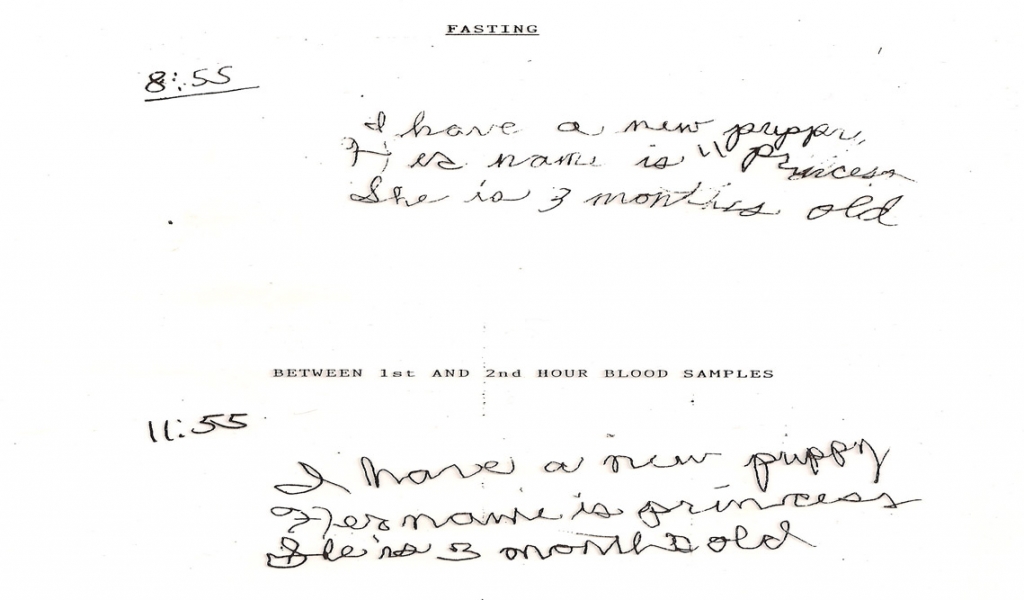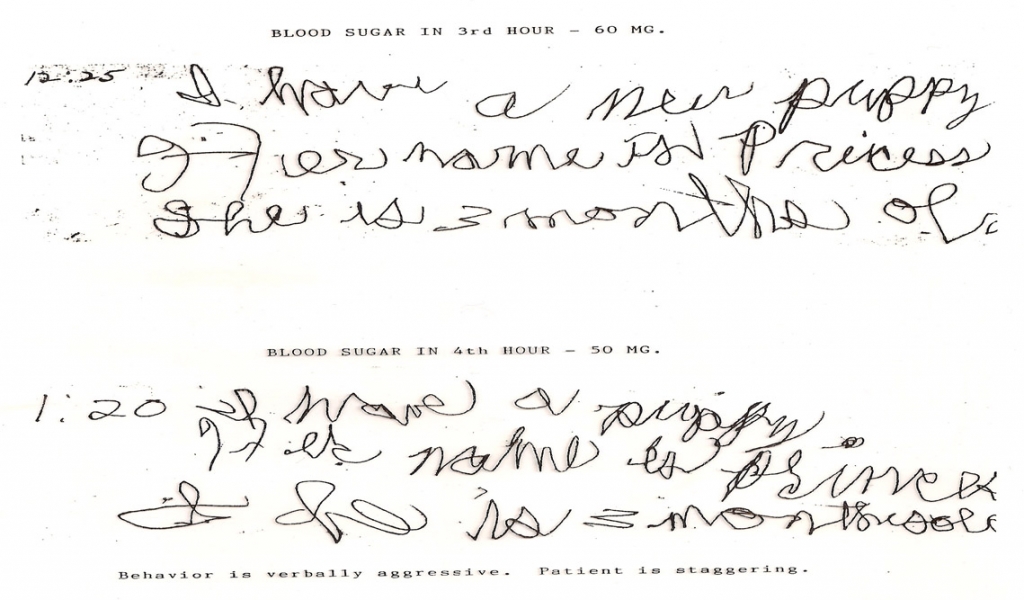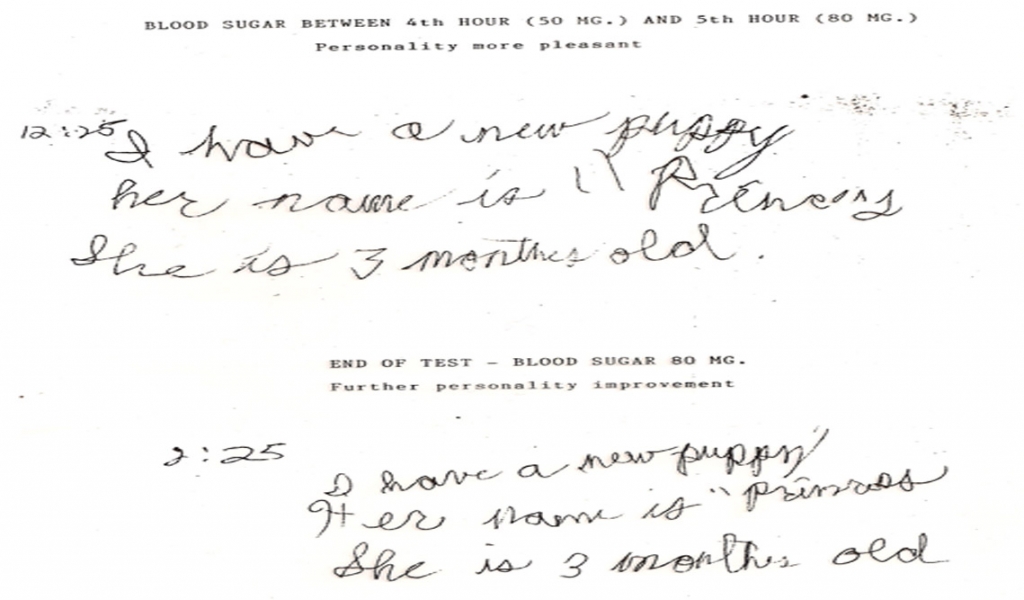Bobby, as we’ll call him, a youngster doing poorly in school, suffered significant intermittent behavior problems. From mom’s description, I suspected he might have a disorder known as hypoglycemia or ‘low blood sugar’, and sent him for a 5-hour glucose tolerance test to diagnose this problem. His mom garnered these handwriting samples during the test.
The first writing was done just before starting the test. The test requires overnight fasting. A blood sugar (glucose) level is taken before starting, after which he swallows a sweet syrup, something like a soda syrup before the carbonated water is added.
During this test, patients remain at the lab, where feelings, behavior and blood sugar levels are monitored over five hours.
The Mayo Clinic’s normal fasting blood glucose target range for an individual without diabetes is 70-100 milligrams per deciliter. Nutrition experts consider 70-85 mg/dl as optimal.

At this third blood sample, Bobby’s blood sugar goes down to 60 and then even lower to 50 (normal lowest level is 70). This drop results from his body’s excessive release of insulin in reaction to the concentrated sweet syrup he drank. The excess insulin ‘eats up’ the blood sugar causing the level to drop too low. The body, brain and nervous system are fueled by glucose so the effect is easily seen in how the patient feels and behaves. Bobby was staggering and telling everyone to go f__k themselves!
Common symptoms of low blood sugar are shakiness, hunger, nervousness, anxiety, poor frustration tolerance, lightheaded, sudden sweating, brain fog, agitation, behavior & learning problems, and in some severe cases–blacking out. Symptoms vary from person to person.

Although the clock recording times are incorrect, these next writing samples are seen improving as Bobby’s blood sugar levels are returning to normal. His staggering and obnoxious behavior is gone as the glucose level reaching the brain and nervous system is restored to normal.
Repeatedly eating too much sweet stuff can cause hypoglycemia, but over time low blood sugar can give way to type-2 diabetes as the body loses its oversensitivity to insulin, and becomes insulin resistant. Insulin resistance is type-2 diabetes.
The incidence of type 2 diabetes is exploding exponentially. While it used to be called ‘adult onset diabetes’, it is now prevalent in children. This diet-created, epigenetic disease will stop manifesting when we improve the overall quality of what we eat, and drastically reduce refined and manufactured dietary sugars.
Hypoglycemia and Diabetes are clearly preventable.

